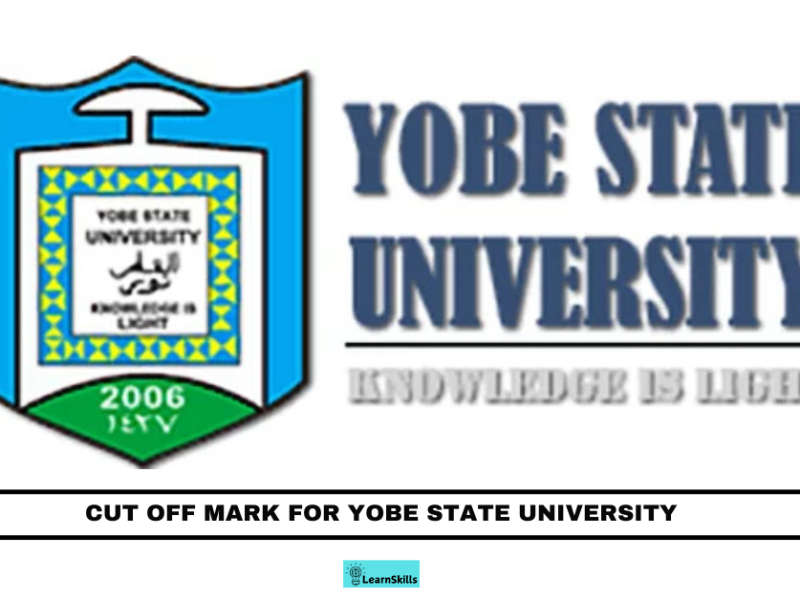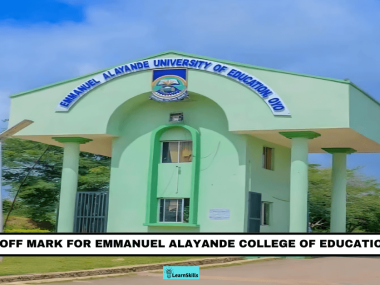The current cut-off mark for YSU is 150 for the 2025/2026 academic session. This varies by course for higher requirements. This means you need to achieve this score to qualify for entry into the university’s degree programs.
As you explore your options for universities in Nigeria, keep these cut-off marks in mind. Being informed will empower you to make the best decisions for your future academic career.
Understanding Cut-Off Marks
Cut-off marks play a crucial role in the admission process for universities. They help set the minimum scores required for students to gain admission. Knowing about cut-off marks helps you prepare your application effectively.
Definition and Significance
Cut-off marks are the minimum scores a candidate must achieve to be considered for admission into a university program. These marks are often set by the university’s management and can vary by course.
In Nigeria, the Joint Admissions and Matriculation Board (JAMB) is responsible for conducting examinations like the Unified Tertiary Matriculation Examination (UTME). After UTME results are released, universities set their cut-off marks based on these scores.
Cut-off marks are significant because they filter candidates and ensure that only those with adequate academic abilities are considered.
Determining Factors for Cut-Off Marks
Several factors influence the determination of cut-off marks for universities, including Yobe State University. First, the number of applicants is crucial. If many students apply, the university may raise the cut-off mark to manage admissions better.
Secondly, the performance of candidates in the UTME affects cut-off marks. If many students score high, the university may increase its cut-off to reflect that level of achievement.
Additionally, specific courses may have different cut-off marks based on their demand and capacity. For instance, competitive courses like Medicine may have higher cut-off marks compared to less competitive courses.
All these factors work together to set the requirements needed for admission into various programs.
YSU Admissions Overview
Yobe State University (YSU) has specific requirements for admissions that you must meet.
General Admission Requirements
To apply for YSU, you need to follow certain general requirements. First, you must have a minimum of five O’Level credits. These should include Mathematics and English Language.
You also need to register and take the Unified Tertiary Matriculation Examination (UTME). Your UTME score must meet YSU’s cut-off mark, which is currently set at 150 for the upcoming academic session.
If you are a candidate applying with an Ordinary National Diploma (OND), you should also meet specific admission standards.
YSU Specific Admission Criteria
YSU looks at your UTME score and O’Level results when considering your application. The cut-off mark for some courses may vary, typically ranging from 140 to 210. For example, competitive programs may require higher scores.
During the 2022/2023 admission exercise, candidates who met the cut-off received priority. You may also need to participate in a post-UTME screening for certain programs.
Be sure to check the specific admission guidelines for your desired program on YSU’s official website. Adhering to these requirements will enhance your chances of gaining admission.
Impact of National Educational Policies
National educational policies play a crucial role in shaping the admission processes for universities in Nigeria. They determine how cut-off marks are set and how students can access higher education.
Joint Admissions and Matriculation Board Regulations
The Joint Admissions and Matriculation Board (JAMB) regulates admissions across Nigerian universities.
JAMB sets a minimum score that students must achieve in the Unified Tertiary Matriculation Examination (UTME) to be eligible for admission. Each university, including Yobe State University, uses these scores to define its cut-off marks.
For instance, Yobe State University’s cut-off mark for the 2025/2026 academic session is 140. This means students must score at least 140 in the UTME to apply.
JAMB also reviews these cut-off marks regularly to ensure they reflect national educational goals. The adjustments aim to improve competition among students and enhance overall educational standards.
Federal and State University Guidelines
Federal and state universities in Nigeria follow guidelines set by the Federal Ministry of Education. These guidelines help ensure that admissions are fair and equitable across different regions.
For example, cut-off marks may vary based on the average scores of applicants from specific states.
In the case of Yobe State, the cut-off marks for male candidates have been significantly lower in past admission cycles compared to their female counterparts. This disparity highlights how national policies can lead to different admission criteria based on gender and location.
It raises questions about accessibility and fairness amidst a diverse educational landscape, impacting students across various universities like Nnamdi Azikiwe University and Lagos State University.
Comparative Analysis of Nigerian Universities’ Cut-Off Marks
Understanding the cut-off marks for various universities in Nigeria helps you gauge your chances for admission. Each institution sets its own standards based on several factors like program demand and academic performance of applicants.
Benchmarking YSU Against Other Institutions
Yobe State University (YSU) has established a minimum cut-off mark of 140 for most programs. This is quite competitive when compared to other universities. For example, the University of Ibadan sets its cut-off at 200, while the University of Lagos requires 190 for general admission.
In contrast, the University of Benin has a cut-off mark of 180. Ahmadu Bello University demands a minimum of 180 for most courses, making it slightly more accessible than others.
Notably, the University of Ilorin also maintains a benchmark of 180, making it an attractive option for many students.
Case Studies of Different University Requirements
Different universities offer varying cut-off marks depending on their academic program. For instance, the Obafemi Awolowo University has a minimum score of 200, particularly for high-demand courses like Law and Medicine.
YSU’s specific programs also feature unique requirements. For example, Biochemistry, Geology, and Microbiology have cut-off marks set at 150.
In contrast, Computer Science at YSU requires 170. This reveals the strategic approach of universities towards managing enrollment based on academic thresholds.
When you compare these figures, it is clear that YSU remains a viable option for prospective students, especially those who may not meet the higher cut-offs at other institutions.
Emerging Trends in University Admissions
Recent developments in university admissions show a significant shift influenced by technology and socio-economic factors. These changes impact how cut-off marks, like those for Yobe State University, are determined and affect students’ chances of admission.
Influence of Technology on Admission Processes
Technology plays a crucial role in modern university admissions. Many universities now use online platforms for application submissions, making the process more accessible.
The Joint Admission and Matriculation Board (JAMB) has also embraced online testing, which streamlines how students are assessed. This shift allows universities to quickly analyze application data and adjust cut-off marks based on real-time feedback.
Additionally, universities can now reach a broader audience through social media and websites. This outreach helps students understand the requirements and expectations for admissions. A transparent process helps candidates select institutions that align with their goals.
Impact of Socio-Economic Factors on Cut-Off Decisions
Socio-economic factors significantly influence admission cut-off decisions. In Nigeria, varying regional resources affect education quality. This can lead to disparities in student performance on assessments like JAMB.
Universities might adjust cut-off marks based on these conditions. For example, Yobe State University may set lower marks to ensure that qualified candidates from less advantaged backgrounds can gain admission.
Moreover, economic conditions, such as unemployment rates, can affect the number of applicants.
In tough economic times, universities may see fluctuations in applications, prompting them to reconsider their cut-off strategies.










